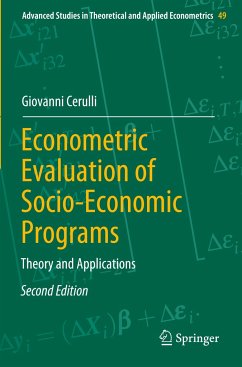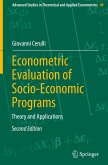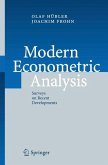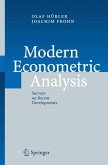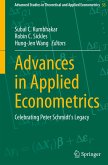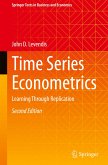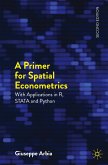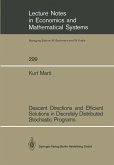This book provides advanced theoretical and applied tools for the implementation of modern micro-econometric techniques in evidence-based program evaluation for the social sciences. The author presents a comprehensive toolbox for designing rigorous and effective ex-post program evaluation using the statistical software package Stata. For each method, a statistical presentation is developed, followed by a practical estimation of the treatment effects. By using both real and simulated data, readers will become familiar with evaluation techniques, such as regression-adjustment, matching, difference-in-differences, instrumental-variables, regression-discontinuity-design, and synthetic control method, and are given practical guidelines for selecting and applying suitable methods for specific policy contexts.
The second revised and extended edition features two new chapters on some recent development of difference-in-differences. Specifically, chapter 5 introduces advanceddifference-in-differences methods when many times are available and treatment can be either time-varying or fixed at a specific time. Chapter 6 introduces the synthetic control method, a treatment effect estimation approach suitable when only one unit is treated. Both chapters present applications using the software Stata.
The second revised and extended edition features two new chapters on some recent development of difference-in-differences. Specifically, chapter 5 introduces advanceddifference-in-differences methods when many times are available and treatment can be either time-varying or fixed at a specific time. Chapter 6 introduces the synthetic control method, a treatment effect estimation approach suitable when only one unit is treated. Both chapters present applications using the software Stata.
"This book gives a comprehensive account of micro-econometric techniques for such evidence-based programme evaluation in the social sciences. ... gives an up-to-date account of the subject and a comprehensive description of each technique, covering both theoretical aspects and issues of application such as model checking, accuracy and reliability of results, and computation including related software. ... book is well written and clearly arranged and can be recommended to all statisticians with an interest in programme evaluation in the social sciences." (Peter Hackl, Statistics Papers, Vol. 57, 2016)

